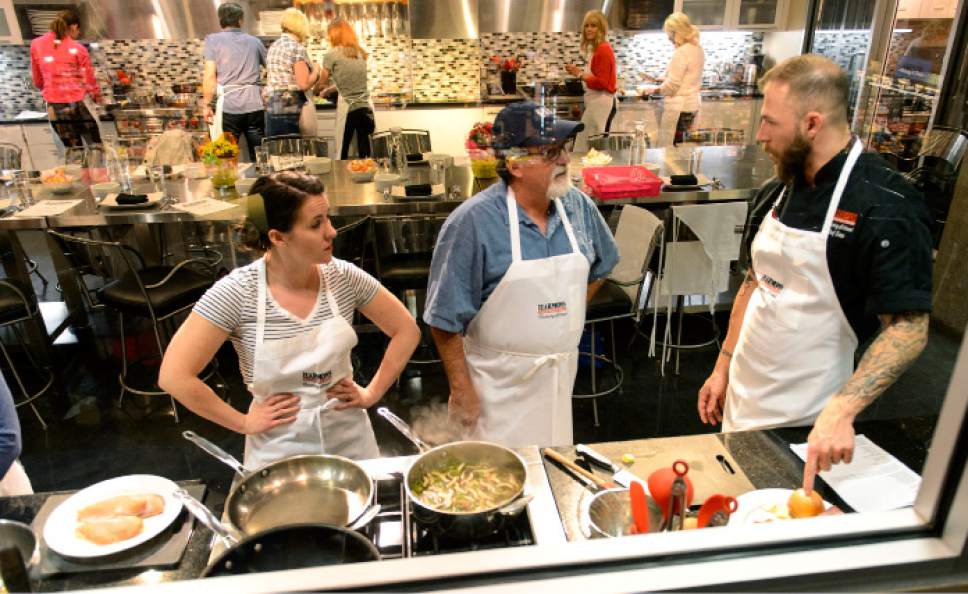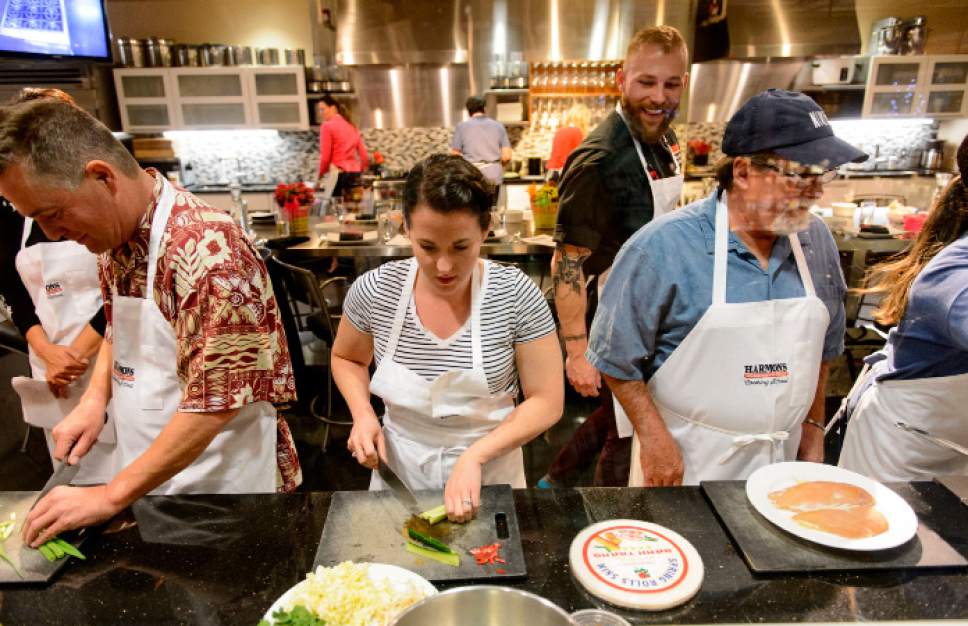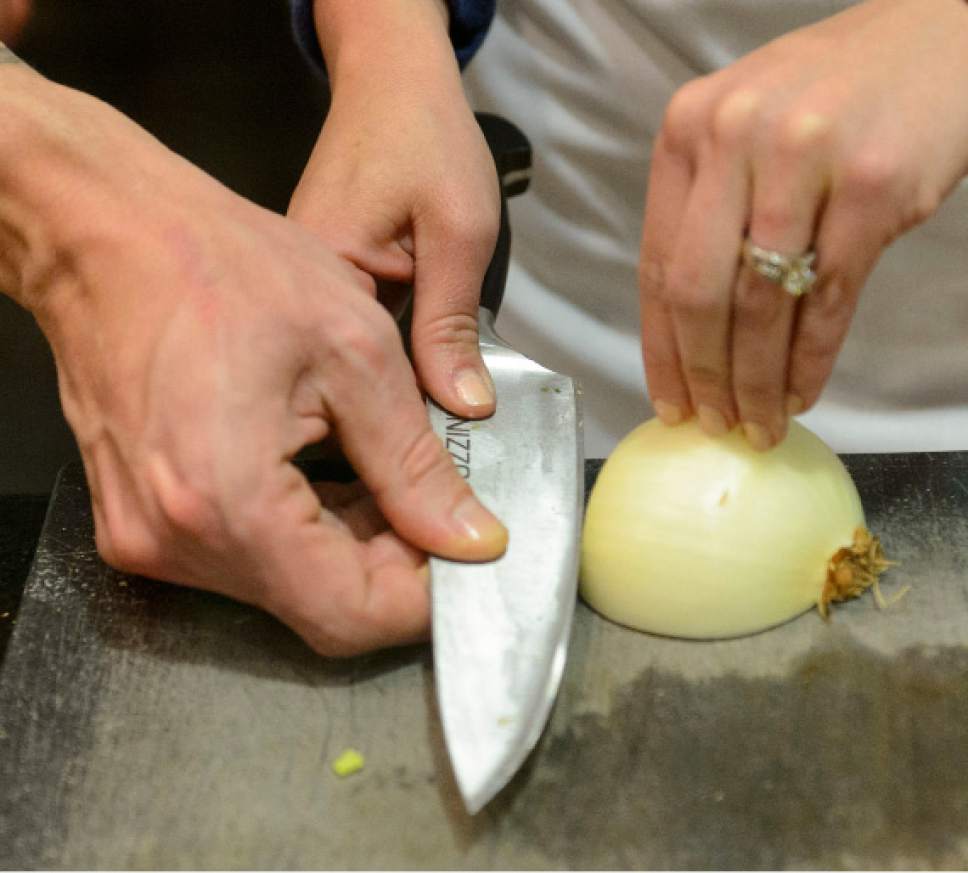This is an archived article that was published on sltrib.com in 2017, and information in the article may be outdated. It is provided only for personal research purposes and may not be reprinted.
Harmons City Creek is Utah's first grocery store to get a restaurant liquor license.
That doesn't mean customers are allowed to pop open a can of Budweiser while shopping for bread and toilet paper.
Rather, it allows students in the cooking school to buy a glass of wine, a bottle of beer or a cocktail during any class they have paid to attend.
Previously, liquor was allowed only if the class was specifically to educate students about wine, beer or spirits.
Classes at Harmons City Creek, 135 E. 100 South, Salt Lake City, take place in the second-floor demonstration kitchen that overlooks the grocery area. The sessions usually end with students sitting around communal tables, eating the food that was prepared. It wasn't unusual for students to request an alcoholic beverage with their meal, Dean Peterson, Harmons CEO, told the state liquor board recently.
"It was confusing," he said, "because we sell beer one floor away and we don't allow them to go get it."
While common in other parts of the country, a grocery store with a restaurant liquor license is curious for Utah, said John T. Nielsen, chairman of the state liquor board.
"We're kind of looking at this as an experiment," he said after the board approved Harmons' request last month.
Harmons plans to apply for more full-service restaurant liquor licenses, which allow it to serve wine, beer and spirits with food to those 21 and older. Harmons also operates cooking schools at its stores in Farmington, Bangerter Crossing, Traverse Mountain and Santa Clara.
The cooking school classroom at Harmons often is used for private events, said Tyler Kofoed, cooking school director. Having the restaurant liquor license also will make it easier to serve liquor during private events, an attractive option for many customers.
For several years, culinary schools, restaurants and even grocery stores in Utah have been able to offer alcohol classes and tastings, if they met the requirements for an educational liquor permit offered through the Utah Department of Alcoholic Beverage Control (DABC). Even some nonfood-industry businesses — such as painting studios — requested the educational liquor permits.
But the classes had to have some sort of educational component relating to liquor for alcohol to be poured. The cost of the alcohol was included in the price of the class.
"Under the restaurant license, things will be opposite," said Kofoed. In classes where the topic is food centered — like vegetarian, Chinese or Italian — customers will order and pay for alcohol drinks separate from their class fee.
Under state law, Harmons will give up its educational permit and will have to create a separate liquor dispensing area.
But, for the most part, the change in liquor licenses won't be noticeable to most customers, Kofoed said. "We will still be a school and offer liquor education. This will just allow us to increase offerings to our customers."







